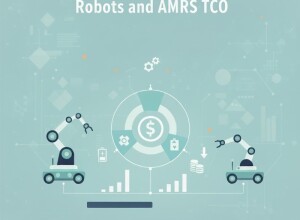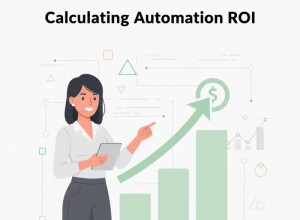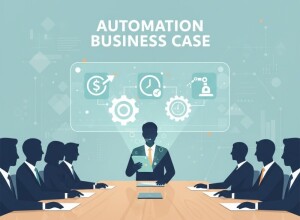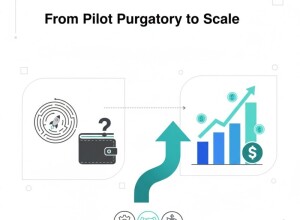Artificial Intelligence: Frequently Asked Questions (FAQ)
This FAQ contains over 70 questions about Artificial Intelligence (AI). It is organized into sections for easy reading and includes links to detailed articles and resources.
Basics & Definitions
Q: What is Artificial Intelligence?
A: Artificial Intelligence (AI) refers to computer systems that can perform tasks requiring human-like intelligence. Read more.
Q: What is the difference between AI and automation?
A: Automation follows pre-defined rules, while AI can learn from data and adapt over time. Learn more.
Q: What is the difference between AI, Machine Learning, and Deep Learning?
A: AI is the broad field, Machine Learning is a subset that learns patterns from data, and Deep Learning uses neural networks. Explore differences.
Q: Who invented AI?
A: Alan Turing conceptualized AI in the 1950s, and John McCarthy coined the term in 1956. History of AI.
Q: What are the main types of AI?
A: Reactive Machines, Limited Memory, Theory of Mind, and Artificial General Intelligence (AGI). Learn more.
Q: What is an algorithm in AI?
A: An algorithm is a set of instructions a computer follows to solve a problem or process data. Glossary.
Q: What is a neural network?
A: A neural network is a computational model inspired by the human brain, used in deep learning. Learn more.
Q: What is the difference between narrow AI and general AI?
A: Narrow AI is specialized in one task, while General AI can perform any intellectual task humans can do. Learn more.
Everyday Use
Q: Where is AI used in daily life?
A: AI powers virtual assistants, recommendation engines, spam filters, navigation apps, and smart home devices. See examples.
Q: Can AI be creative?
A: Generative AI can create text, images, music, and videos, although it lacks true human creativity. Explore generative AI.
Q: Is AI in my smartphone?
A: Yes, AI powers predictive text, voice assistants, camera optimization, and personalized recommendations.
Q: Does Netflix use AI?
A: Yes, AI recommends shows based on your viewing history and preferences.
Q: Is AI used in social media?
A: Yes, AI is used for content moderation, personalized feeds, ad targeting, and analytics.
Gaming & Entertainment
Q: What is the role of AI in gaming?
A: AI controls NPCs, adapts difficulty, generates content, and enhances immersive experiences in games. Learn more.
Q: How is AI used in movies and music?
A: AI generates scripts, music, visuals, and even creates virtual actors for films, shows, and performances. Learn more.
Q: What are virtual actors?
A: Digital characters created with AI that act, sing, or interact with audiences in games, films, and media. Read more.
Technology & How It Works
Q: How does Machine Learning work?
A: ML algorithms analyze data, detect patterns, and improve predictions over time. Read more.
Q: What is supervised learning?
A: Supervised learning uses labeled datasets to train algorithms with known outcomes. Learn more.
Q: What is unsupervised learning?
A: Unsupervised learning finds hidden patterns in unlabeled data. See details.
Q: What is reinforcement learning?
A: AI learns by trial and error, receiving rewards or penalties. Explore.
Q: What is Natural Language Processing (NLP)?
A: NLP enables AI to understand, interpret, and generate human language. Learn more.
Q: What is computer vision?
A: Computer vision allows AI to process and analyze images and videos. Read more.
Q: What is a large language model (LLM)?
A: An LLM is trained on massive text datasets to generate human-like text. Learn more.
Q: What is prompt engineering?
A: Prompt engineering is the practice of crafting effective inputs to guide AI models. See article.
Q: What is Explainable AI (XAI)?
A: XAI makes AI decisions understandable to humans. Read more.
Q: What is Edge AI?
A: AI that runs locally on devices instead of relying on cloud servers. Learn more.
Q: What are transformer models?
A: AI architectures used in language, vision, and multimodal tasks. Learn more.
Platforms & Tools
Q: What is OpenAI?
A: OpenAI develops AI models like GPT and DALL·E. Read more.
Q: What is ChatGPT?
A: ChatGPT is a conversational AI model built by OpenAI using GPT architecture. Explore.
Q: What is Anthropic Claude?
A: An AI assistant developed by Anthropic focused on safe and reliable outputs. Learn more.
Q: What is Google DeepMind?
A: A Google research lab famous for breakthroughs in reinforcement learning and protein folding. Read more.
Q: What is Hugging Face?
A: An open-source platform hosting AI models, datasets, and tools. See details.
Q: What are TensorFlow and PyTorch?
A: Popular libraries for building AI models. Explore.
Q: What is Microsoft Copilot?
A: AI features integrated into Microsoft Office and developer tools. Read more.
Q: What is IBM Watson?
A: IBM's AI platform used in healthcare, finance, and business analytics. See details.
Applications by Industry
Q: How is AI used in healthcare?
A: AI assists in diagnostics, drug discovery, personalized treatment, and hospital operations. Read more.
Q: How is AI used in finance?
A: AI detects fraud, analyzes risks, and powers algorithmic trading. Explore.
Q: How is AI used in retail?
A: AI optimizes recommendations, inventory, pricing, and customer service. Learn more.
Q: How is AI used in manufacturing?
A: AI enables predictive maintenance, quality control, and production optimization. See details.
Q: How is AI used in education?
A: AI powers personalized learning, automated grading, and adaptive platforms. Read more.
Q: How is AI used in cybersecurity?
A: AI detects anomalies, prevents cyberattacks, and strengthens defenses. Explore.
Q: How is AI used in marketing?
A: AI analyzes customer data, predicts trends, and automates campaigns. Learn more.
Q: How is AI used in law?
A: AI assists with contract analysis, case prediction, and legal research. Read more.
Q: How is AI used in energy?
A: AI optimizes energy consumption, manages grids, and predicts equipment failures. Explore.
Ethics, Risks & Future
Q: Is AI dangerous?
A: AI itself is not inherently dangerous, but misuse can lead to bias, surveillance, and disinformation. See risks.
Q: What are the main ethical concerns with AI?
A: Bias, fairness, accountability, transparency, and privacy are major ethical issues. Read more.
Q: What is AI bias?
A: AI bias occurs when a model produces unfair or discriminatory results due to biased training data. Learn more.
Q: How is AI regulated worldwide?
A: Regulation varies; frameworks like the EU AI Act shape rules globally. Explore regulation.
Q: Can AI affect human jobs?
A: AI may automate tasks but also creates new roles and transforms work. Read more.
Careers & Learning
Q: How can I start learning AI?
A: Start with Python, mathematics, and introductory ML libraries like TensorFlow or PyTorch. Start learning.
Q: Do I need to be a programmer to work in AI?
A: Programming helps, but there are also roles in data annotation, ethics, project management, and AI strategy.
Q: What skills are important in AI careers?
A: Programming, data analysis, statistics, cloud computing, and problem-solving skills are essential. See careers.
Q: Are there free resources to learn AI?
A: Yes, online courses, tutorials, open-source projects, and community forums are widely available. Explore resources.
The Future of AI & Singularity
Q: What is Artificial General Intelligence (AGI)?
A: AGI is AI capable of performing any intellectual task a human can do. Learn more.
Q: Will AI become conscious?
A: There is no scientific consensus; current AI lacks self-awareness or consciousness.
Q: What is the AI singularity?
A: A hypothetical point where AI surpasses human intelligence, potentially transforming civilization. Read more.
Q: What is Artificial Superintelligence (ASI)?
A: AI that exceeds human intelligence in all areas, potentially posing existential risks. Learn more.
Q: What is recursive self-improvement?
A: When an AI improves its own algorithms and architecture, accelerating its growth. Read more.
Q: How will AI affect society in 10 years?
A: AI will drive automation, innovation in healthcare, education, and logistics, while raising ethical and regulatory challenges. Back to guide.
Q: What are emerging AI trends?
A: Trends include generative AI, AI for climate solutions, autonomous vehicles, and AI-powered medical diagnostics.
Q: Where can I find AI resources and guides?
A: Our Complete AI Guide and AI Glossary provide extensive resources for all levels.







































